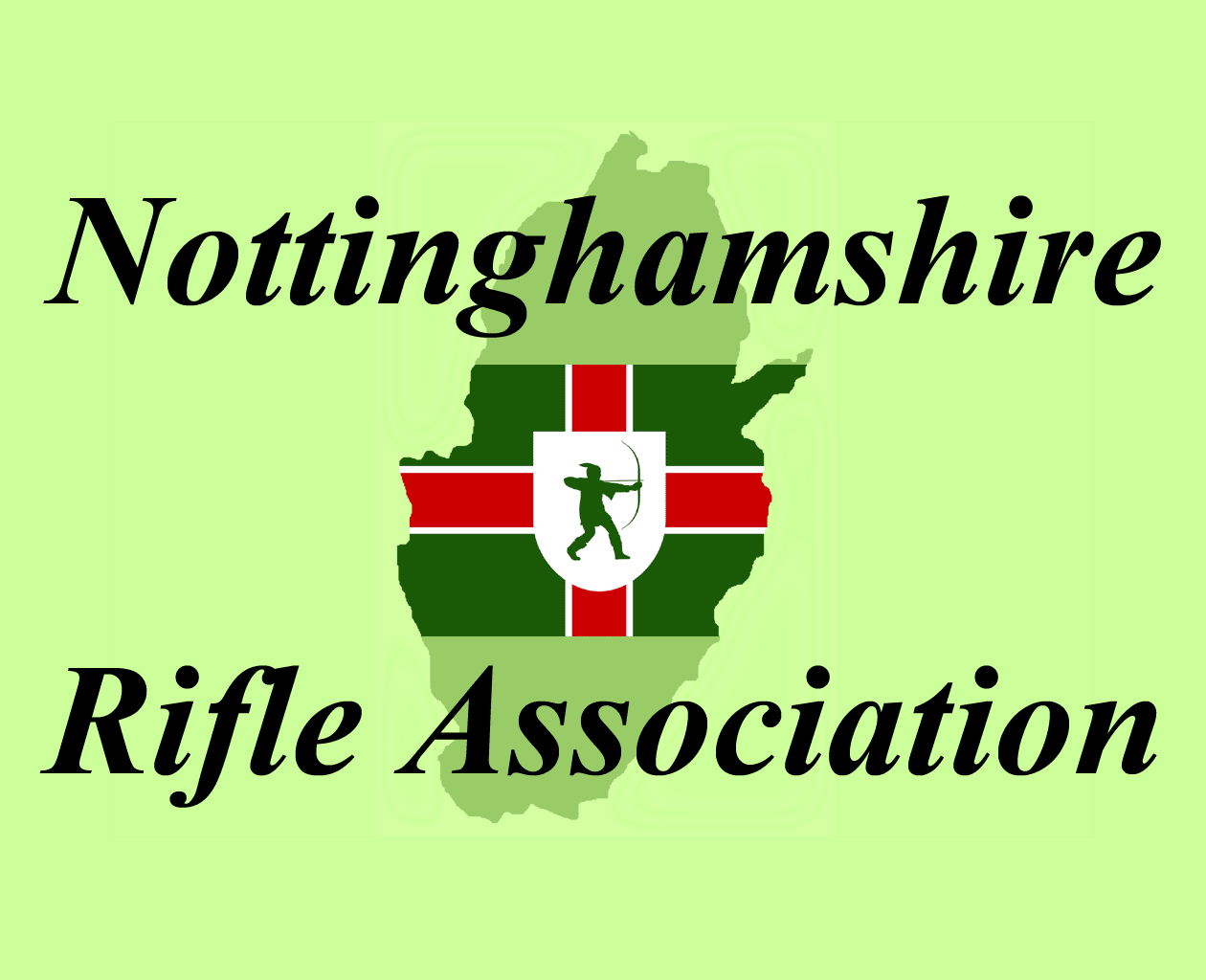New Range Petition to Town Council
The Nottinghamshire Guardian of the 2nd of December 1893 carried a long and well written article reviewing the situation that the Robin Hood Rifles were in with regard to the lack of a range and their finances which were both conspiring to bring the regiment to its knees.
A petition had been presented to the Town Council by the leaders of the regiment for financial support for a new range, the location and details of which had been fully researched by the officers. The report carries a full explanation of the importance of the Robin Hoods' having their own range with a summary of the events leading up to the present situation, including the financial consequences of being without a range.
It is more than probable that the fact that the very existence of the Robin Hood Rifles is at stake has escaped the notice of a very great many people of Nottingham. Such is the case, however, and unless the members of the Town Council of the borough decide to comply with the request of the petition presented to them at their last meeting from the Duke of St. Albans, Colonel Hubbersty, and the officers of the regiment, or formulate some other scheme, a corps whose traditions are as great any which are to be found in the whole history of the volunteer movement will have to be disbanded. What is required to obviate the necessity of such a very undesirable proceeding and one which would certainly reflect no credit on the town, is a sum of £16,000, in order that a shooting range be purchased. The uninitiated in volunteer matters may very properly ask why such a large amount is wanted to buy a site on which the Robin Hoods may merely practice firing, and how it is that the existence of the battalion depends upon the acquisition of a rifle range. These questions are not difficult to answer. In the first place, the funds by which the regiment is sustained are derived from the Government, who pay annually 35s. for each man who is certified as being efficient, and before he can be so certified he has to undergo a certain amount of training in class firing.
Prior to 1890 the Robin Hoods had a range on which they carried out this work on Coppice New-road, but in August of that year the War Office authorities condemned it, as they did many others throughout the country, as being unsafe. There is no doubt that it was so, for there were houses in all directions, and the highway, which ran alongside, made it particularly dangerous. Since then the corps has been inconvenienced beyond measure. Musketry training has had to be obtained wherever practicable, the ranges of neighbouring regiments being utilised when the consent of the officers could be obtained, whilst in one or two instances the duty has had to be left until the men were in camp when they ought really to have been doing other work. Permission to use some of these a ranges has now, however, been withdrawn, so that some decided step in the direction of obtaining a new one has at last been forced on the officers of the Robin Hoods. Even with these advantages, if such they may be called, there have been deficiencies in the class firing which the War Office have hitherto excused, but now they have intimated that no allowances can be made on account of the failures to fulfil these requirements. This position, as the petitioners have pointed out, has therefore been arrived at that without a range the regiment cannot earn the Government grant, without the grant the corps is deprived of its income, without its income it cannot meet its expenditure, and as a logical consequence it must cease to exist.
The task of obtaining a range is a more difficult one than many would imagine. Very naturally people do not consider them altogether desirable things to have in close proximity to them, and on that ground those who have land which would answer the purpose do not care to let or sell it, for fear of depreciating the adjoining property. The officers of the Robin Hoods have found this to be the case under numerous circumstances in their quest for a site. Since their old place was condemned, too, the magazine rifle has come into general use, and it carries very much further than the old Martini-Henry weapon. Stringent regulations in order to ensure public safety have therefore been necessitated. One of the requirements now is that there shall be a background to the targets of about two miles, free from cross roads and houses. Even the proposed new range at Trent does not fulfil this condition, but as there is a hill rising to the height of about 130 feet in the rear forming a natural butt it has been accepted by the Government authorities.
Looking at the facilities there are for reaching it by the Midland Railway it is as admirably situated as could possibly be expected for a town of the size of Nottingham with its numerous and extended suburbs. Immediately upon emerging from the subway at the Nottingham end of Trent Station, and upon simply crossing the private road of the Midland Company which leads to the river the nearest point of the range, the 800 yards mark, is entered upon. The range stretches away from there to Cranfleet Cut, on the near or north side of which it is proposed to erect the targets. The canal will be effectually protected by a stone or brick butt, which will extend all across the breadth of the range, and with regard to the river beyond it is proposed to throw a chain across some distance above the weir, in order to prevent people who are boating getting within the line of fire. Over the Trent Thrumpton-hill forms the natural background before mentioned. The range itself is well adapted for the purpose for which it has been selected, being remarkably level, and only covered by a few fences, which will, of course, have to be removed. Negotiations for its purchase have been proceeding for about two years, and it has been with the greatest difficulty that the consent of the various owners has been obtained to provisional terms of purchase. These the Corporation are asked to become responsible for, and they represent a sum of £16,000.
One question which some people may ask is why the Government should not pay the money. The best answer that can be given to such an inquiry is that they have not purchased sites for any other regiment, and it is altogether improbable that they will make any exception in favour of the Robin Hoods. If they did so there would be little doubt that they would soon be flooded with applications from all parts of the country for similar grants, whilst those battalions which have provided ranges at their own expense would have cause for much grumbling. It was plainly the intention of the Government to throw the burden upon the local rates when they passed the Military Lands Act of 1892, under which Town Councils are empowered to acquire necessary sites. Other persons may be of opinion that a range ought to be obtained for a great deal less money. All that can be said on this point is that the officers of the Robin Hoods have spent many hours and travelled a great number of miles through the county in their endeavour to get a site at a cheaper price, and with less inconvenience, but they were unable to do so.
It is very incumbent that there should be no delay in providing a range. The members of the Robin Hoods will soon have to begin their registering practice, and they have absolutely no place where they can carry it out, and with the season so close upon them the outlook is anything but satisfactory. Hampered, too, by a heavy debt on the Drill Hall, which they are making a great effort to wipe off by means of a bazaar to be held shortly, the position of the responsible members of the corps is plainly anything but a pleasant one.
Transcripts from Nottinghamshire Guardian 02/12/1893
British Library Newspaper Archive

